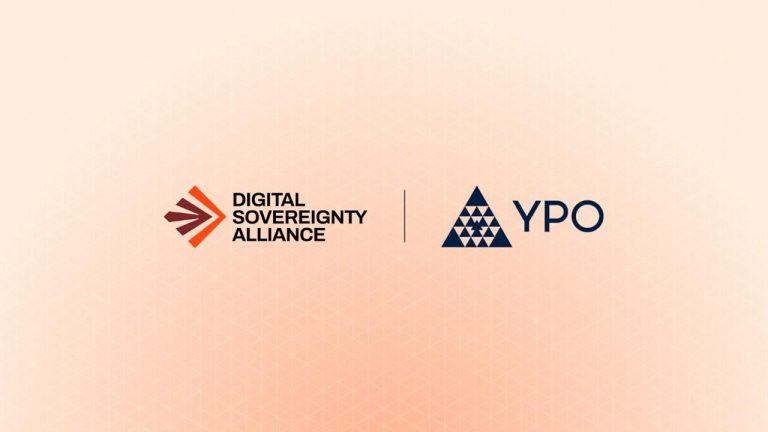A Minnesota nonprofit has been raided by the Feds in a new investigation more than a year after last year’s $250 million-meal program fraud scheme. In those allegations, Feeding Our Future is said to have had scammers steal hundreds of millions of dollars from taxpayer-funded nutrition programs for hungry children during the early days of the pandemic.
Now, more than a year later, New Vision Foundation (NVF) in Saint Paul is the focus of yet another Feeding Our Future meal fraud investigation.
NVF is a nonprofit with a mission to “create pathways to success by motivating disadvantaged youth in Minnesota through coding and digital literacy classes,” according to its website, which also displays logos from major sponsors including 3M, Target and Wells Fargo, as well as the City of Saint Paul.
Don’t miss
- I’m 49 years old and have nothing saved for retirement — what should I do? Don’t panic. Here are 6 of the easiest ways you can catch up (and fast)
- Robert Kiyosaki warns of a ‘Greater Depression’ coming to the US — with millions of Americans going poor. But he says these 2 ‘easy-money’ assets will bring in ‘great wealth’. How to get in now
- Gain potential quarterly income through this $1B private real estate fund — even if you’re not a millionaire. Here’s how to get started with as little as $10
How meal program fraud works
In March, a jury found Aimee Bock, founder and executive director of Feeding Our Future, guilty on all counts of fraud. She’s considered the ringleader of an elaborate scheme that stole $250 million from the federal child nutrition program in 2021, during the height of the pandemic.
While Bock is in jail awaiting sentencing, 47 suspects “have been indicted for defrauding a federally funded child nutrition program,” according to the FBI.
The scam was executed by claiming to serve more meals to children in need than was the case. Like other organizations taking part in the scam, “NVF allegedly submitted fraudulent reimbursement requests to the Minnesota Department of Education for meals that it never served,” according to MPR News.
During the trial, it came to light that Feeding Our Future paid NVF more than $2.5 million in 2021. While NVF claimed to serve more than 1 million meals to children in need over an eight-month period in 2021, “the FBI believes meal count sheets, claiming to feed more than 3,000 kids two meals every day, are phony,” according to KARE 11.
There were several red flags. For example, workers at a neighboring nonprofit called Repowered (which provides electronics recycling jobs to people recently released from jail), “told law enforcement that they never saw any children at New Vision Foundation — either being served meals or otherwise,” according to the search warrant written by FBI Special Agent Travis Wilmer.
And, since Repowered has registered sex offenders on staff, “children could not be present at New Vision Foundation.”
Read more: Want an extra $1,300,000 when you retire? Dave Ramsey says this 7-step plan ‘works every single time’ to kill debt, get rich in America — and that ‘anyone’ can do it
NVF invoices claim the food was purchased from a food service company in Eden Prairie. But, according to the search warrant, the address on the invoices led to an apartment complex rather than a food warehouse for produce, dairy products and rice (as the invoices claimed).
In addition, public tax filings show that NVF reported five times the amount of “gifts and grants” in 2021 as it did in 2020 or 2022.
The broader economic implications of fraud
While this was an exceptional case, it’s not the first nor the only case — highlighting what can go wrong with programs intended to help those in need without proper oversight and governance.
A scathing report from the Office of the Legislative Auditor found that the Minnesota Department of Education’s “actions and inactions created opportunities for fraud.”
To mitigate risks, the report recommends better oversight for reviewing and approving sponsor applications, as well as conducting monitoring visits and compliance reviews.
Fraud wastes money and diverts resources from those who actually need it — in this case, thousands of children who never received meals and snacks during the height of the pandemic. It also has broader social impacts, such as eroding trust in government programs.
This is particularly urgent right now, as America’s “crisis of public trust in government is growing,” according to a national survey conducted by the Partnership for Public Service. The survey found that only 23% of Americans trust the federal government and just 29% believe that democracy is working in the U.S. today.
The federal government loses between $233 billion and $521 billion annually to fraud, according to the U.S. Government Accountability Office (GAO).
In the case of Feeding Our Future, the FBI and law enforcement partners have “been able to recover $50 million from 60 bank accounts, 45 pieces of property, and numerous vehicles and additional items, such as electronics and high-end clothing,” according to the FBI and “additional seizures are expected.”
When it comes to detecting and rooting out fraud, advanced technologies could help.
For example, the U.S. Department of Agriculture’s (USDA) is targeting fraud in its Farm and Food Workers Relief Program in a variety of ways, including a centralized risk and fraud analysis tool, document verification technology to detect alterations and predictive analytics that analyze deviations from expected patterns. It also monitors social media and the dark web.
Concerned citizens can learn more about common fraud schemes on GAO’s Antifraud Resource or they can report fraud, waste, abuse or mismanagement of federal funds to FraudNet.
What to read next
- JPMorgan sees gold soaring to $6,000/ounce — use this 1 simple IRA trick to lock in those potential shiny gains (before it’s too late)
- This is how American car dealers use the ‘4-square method’ to make big profits off you — and how you can ensure you pay a fair price for all your vehicle costs
- Here are 5 ‘must have’ items that Americans (almost) always overpay for — and very quickly regret. How many are hurting you?
- How much cash do you plan to keep on hand after you retire? Here are 3 of the biggest reasons you’ll need a substantial stash of savings in retirement
Like what you read? Join 200,000+ readers and get the best of Moneywise straight to your inbox every week. Subscribe for free.
This article provides information only and should not be construed as advice. It is provided without warranty of any kind.


